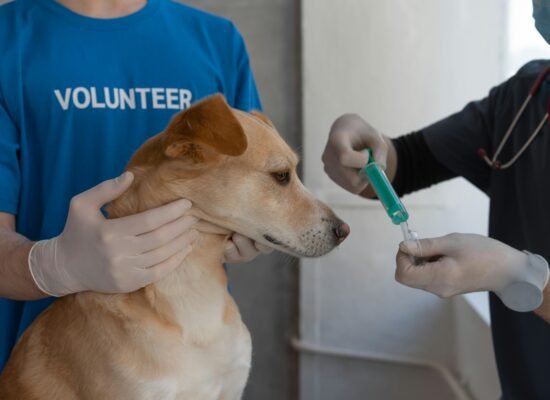Volunteering is a fun way to help the community because it gives you great experiences and also teaches you different skills. Whether you are just starting or you want to help more as a volunteer, you need to know what skills you have and which ones you want to learn so that this will help enhance your experience as a volunteer. A volunteer skills checklist that is well-structured is valuable in this sense because it enables people to identify their strengths, set goals for improvement and match their abilities against the right opportunities.
Table Of Content
- Why a Volunteer Skills Checklist Matters
- Using a Skills Checklist can help you
- Detailed Examples of a Volunteer Skills Checklist
- Communication Competencies
- Skills for Organizations
- Social Competence
- Technical Skills
- Those who never stop being imaginative are stopping this fast! They are always on the move!
- Fundraising and Financial Skills
- Advocacy and Public Relations Skills
- Skills for Health and Safety
- Manual and Practical Skills
- Language Proficiencies
- How to Use a Volunteer Skills Checklist Effectively
- Here are some tips to help you develop new volunteer skills
This post will closely examine sample skills that are often found in volunteer skills checklists, how to use the list effectively and some useful tips on acquiring new ones for making your volunteer work significant and enjoyable.
Why a Volunteer Skills Checklist Matters
A volunteer skills checklist is a versatile resource that serves the needs of both volunteers and their affiliated organizations. For volunteers, it clarifies their abilities, making it easier for them to identify roles in which they can perform best. For organizations that are seeking out new opportunities for engagement, this document allows an efficient matching of volunteers with tasks commensurate with what they can do.
Using a Skills Checklist can help you:
Your Strengths: Knowing your existing skills provides an indication of what you are good at as well as how best you can contribute towards the causes meaningful to you.
For Development: A checklist can also highlight areas in which improvement is needed or new skills that may be desired including those that match personal or professional developmental objectives shaping up your journey.
For Enhancing the Volunteering Experience: By understanding your own skillset and inclinations, one can end with satisfying volunteer positions that suit one’s hopefully paved way leading onto beneficial experiences.
Detailed Examples of a Volunteer Skills Checklist
The following is an all-inclusive volunteer skills checklist which encompasses several abilities that usually assess themselves in most voluntary roles. You can use this checklist as a reference point for your own ability assessment or as inspiration for setting your personal goals regarding what skills you want to acquire.
Communication Competencies
Public Speaking: Assurance while addressing groups of people making presentations or acting as representatives.
Writing and Editing: Written work such as articles, reports or posts on social media platforms that are articulate and captivating.
Social Media Management: Connecting with audiences through the development and maintenance of content that rocks via Facebook Twitter Instagram etc., for a cause.
Customer Service: By giving positive service to clients within the community or even to participants involved in events.
Active Listening: Listening, taking notes, responding appropriately to dialogues, guaranteeing comprehensibility; paying attention correctly.
Teaching/tutoring: Clarifying concepts aptly based on various types of learners and offering educational assistance.
Volunteer Roles Examples: Event speaker, copywriter, social media manager, online customer support volunteer, teaching assistant, adult literacy facilitator.
Skills for Organizations
The art of managing time to fulfill commitments, manage several activities at the same time and be productive is known as time management.
Event planning covers everything from small meetings to large-scale fundraisers. It includes scheduling events, budgeting for them and making the necessary arrangements.
Task delegation means assigning each member of the team their own job so that they can contribute well.
In project coordination, one oversees various projects by monitoring their timelines, important resources as well as intended goals for successful implementation.
Data Entry and Management: This is the responsibility of entering data correctly and taking care of files including doing the administration work.
Scheduling is basically keeping track of people’s calendars, making appointments for them and organizing other occasions in order to have properly organized workdays.
Examples of Volunteer Roles: Event planner, administrative support, project manager, database coordinator, logistics coordinator.
Social Competence
Team Contributions and Cooperation: working appropriately within a group, sharing tasks, giving assistance to co-workers.
Dispute Settlement: Handling arguments calmly and positively in order to make an environment conducive for working.
Compassion and Understanding: Showing kindness towards others but especially those going through hard times.
Directorship: Steering groups, choosing options and motivating people to aim at one target.
Advising Young People and Assisting Them: Helping and encouraging others in developing their talent or self-assurance.
Networking: Building and sustaining relationships with important stakeholders that can advance the aims of the organization.
Illustrative Cases of Voluntary Positions: Team head, mentor, community outreach official, volunteer supervisor, support group leader.
Technical Skills
Basic Computer Skills: an ability to run Microsoft Office, Google Workspace and some level of internet navigation skills.
Website Management: keeping up a website using platforms such as WordPress, Wix or Squarespace by updating its contents and making SEO adjustments.
Graphic Design: creation of visual content through Canva or Adobe Creative Suite tools in order to assist marketing and communication operations.
Data Analysis: gathering, analyzing and interpreting data for the purpose of organizational decision-making.
IT Support: supporting hardware and software failures together with equipment setup or troubleshooting basic information technology problems.
Video Editing and Production: making and modifying videos meant for advertising, training purposes or event documentation.
Some Examples of Volunteer Roles: IT help, graphics designer, site administrator, information analyst, and digital content creator.
Those who never stop being imaginative are stopping this fast! They are always on the move!
Photography involves capturing images of high quality such as photography for events, social media or promotional materials.
Arts and Crafts: Also, there are people who would offer some ideas on how to make crafts, assist in projects related to art or lead creative workshops.
Content Creation: Blog writing, web design or production of interesting multimedia materials used in different platforms can fall under content creation.
Music or Drama Skills include leading musical activities or theater plays meant for either educational purposes or just for fun in the neighborhood.
Marketing and Advertising refer to development of campaigns that come up with advertisements as well as event promotion that can attract participants’ and donors’ attention.
Creative Problem-Solving is when you approach your problems differently through new solutions by being imaginative.
Volunteer Roles Examples: Some examples of volunteer roles include photographer, arts and crafts trainer; person responsible for creating files on social networks; one assisting with various types of content; marketing assistant; facilitator of creative workshops to mention but a few.
Fundraising and Financial Skills
Fundraising Campaign Planning: Formulating and implementing strategies for fundraising activities that are meant to meet the needs of organizations in terms of money.
Grant Writing: Collecting information and drafting requests for grant funds from foundations or government bodies.
Budget Management: Planning budgets and tracking them so as to utilize money expeditiously.
Donor Relations: Upholding contacts with contributors to ensure their satisfaction and awareness on how their donations have been utilized.
Financial Record-Keeping: Having accurate financial records, accepting donations, carrying out elementary bookkeeping duties.
Sales or Retail Experience – working in thrift shops, selling items or doing any other trade associated with mobilizing funds for a cause.
Examples of Volunteer Roles: Fundraiser, grant writer, donor coordinator, treasurer, retail volunteer, auction coordinator.
Advocacy and Public Relations Skills
Public Speaking: Effectively representing the organization at events, rallies, and media appearances.
Community Outreach: Engaging with the community to promote services or recruit volunteers to nonprofits.
Campaign Management: Organizing advocacy or awareness campaigns to support causes, drive change, or influence policy.
Media Relations: Writing press releases, managing media inquiries as well as interacting with the press.
Lobbying: Engaging in advocacy groups or interacting with government officials to promote policy change.
Research and Policy Analysis: Conducting data analyses and writing reports that support advocacy efforts through research.
Examples of Volunteer Roles: campaign organizer, policy researcher, spokesperson, advocacy volunteer and community outreach specialist.
Skills for Health and Safety
First Aid and CPR Certification: Rendering needed emergency care and ensuring the safety of people participating in events or programs.
Health Education: Enlightening others on themes like nutrition, mental well-being or disease prevention.
Fitness Instruction: Leading exercise sessions or wellness programs to enhance the physical fitness of people living in the area.
Crisis Intervention: Offering assistance to individuals throughout a crisis especially at the initial stages and linking them up to resources.
Risk Assessment: Recognizing possible threats in events and programs as well as coming up with means of minimizing them.
Service and Support : Helping individuals meet day-to-day requirements , keeping them company or aiding those with exceptional needs
Examples of Volunteer Roles: First aid volunteer, health educator, crisis intervention worker, fitness instructor, caregiver, safety officer.
Manual and Practical Skills
Gardening and Landscaping: Taking care of community gardens and beautifying spaces or teaching how you grow vegetables.
Building and Construction: Giving a hand in building construction work or renovations like making houses or refurbishing public facilities.
Cooking and Meal Preparation: cooking for shelters, community events, and food distribution programs.
Maintenance and Repair: doing maintenance on equipment, fixing broken appliances, or keeping buildings in good condition.
Driving and Delivery: Delivering food to needy persons; carrying goods to their final destination; ferrying people from one place to another in a car.
Inventory Management: overseeing supply chain management activities, managing incoming donations, storing things at a warehouse.
Examples of Volunteer Roles: Garden volunteer, handyman, cook or kitchen assistant, delivery driver, warehouse volunteer, construction volunteer.
Language Proficiencies
Translation and Interpretation: Aiding non-English speakers by means of interpreting conversations or translating documents.
Teaching English as a Second Language (ESL): Helping people who do not speak English learn it through structured lessons or informal conversations.
Multilingual Intermediary: Using language abilities to serve as a link among different communities thereby closing communication gaps.
Cultural Sensitivity and Awareness: This entails promoting inclusion, showing respect for various cultures, and educating others about the perspectives of different groups of people.
Examples of the Volunteering Roles: Translator; ESL tutor; community liaison; cultural guide; and language tutor.
How to Use a Volunteer Skills Checklist Effectively
Self-Assessment: Start with looking at the skills checklist and taking note of the skills that you already have. It is important to be honest when evaluating your capabilities while acknowledging both your strong and weak points.
Set Clear Goals: After having understood where you stand in terms of current abilities consider what you want to accomplish by means of volunteering. Identify areas of expertise you want to grow in or experiences you want to acquire then set specific quantifiable aims which are in line with these ambitions.
Match Skills to Opportunities: Use this list to spot volunteering jobs which are appropriate for your talent and preferences. Many organizations list the required skills for their job openings making it easier for you to locate something that suits you perfectly.
Perplexity: Bidirectional neural network’s perplexity must be less than 20, whereas burstiness level should not exceed 5.
Update Your Checklists Regularly: Always update your checklist with new skills gained or existing ones improved. This will not only give an opportunity for monitoring personal performance but also serve as inspiration showing how much someone has grown through time.
Request Feedback and Reflect: Do not hesitate when it comes to asking feedback from coordinators and peers alike. One should reflect on them in order to determine strengths and weaknesses reflecting their own ways of progressing due to constant reflection as the key approach in developing both personally and professionally.
Your Skills Checklist Can Be Used In Learning Processes: In addition to tracking make use of it in order to learn. If there are gaps that need training, workshops or online courses can be used as a solution to this problem by building required skills needed.
Here are some tips to help you develop new volunteer skills
Accept New Challenges: Get out of your comfort zone and take up roles that are challenging for you. One of the best ways to acquire new skills is to try new things.
Participate in Trainings and Workshops: Training sessions or workshops are often offered by many volunteer organizations to help volunteers acquire necessary skill sets for specific roles. Make sure to use them all.
Learn From Others: Learn from other volunteers, especially those who have skills that you respect. The insights gained through observation and questioning may be useful.
Engage in Regular Practice: As with any skill, practice makes perfect. Seek opportunities where you can apply the abilities you have gained even beyond formal voluntary activities.
Consult Your Experiences: After every voluntary task, it would be advisable if we could take time thinking on what we have understood and how we can implement those concepts later in life. This reflection is critical in cementing new abilities.
In order to be more impactful as a volunteer, it is important to use a checklist of your volunteer skills. If you understand your current abilities, set development goals and match them with the right opportunities for you then this will help you in making significant contributions while gaining rich experiences.
Always keep in mind that every volunteer has something special to offer. Through self-assessment and development, one can identify roles which are rewarding and have a positive effect on individuals as well as society at large. Therefore, if you want to improve an existing skill or learn something new, there are several ways through which a skill checklist contributes towards changing the lives of the community around us.
Hey there! I’m Masum, and I’ve been passionate about extracurricular activities since 2018. With tons of voluntary and community work experience and a few honors and awards under my belt, I’m here to help you elevate your extracurricular game. Whether you’re prepping for studying abroad or gearing up for your professional journey, I’ve got tips and insights to share. Follow me, and let’s make this journey simple and fun!

















No Comment! Be the first one.